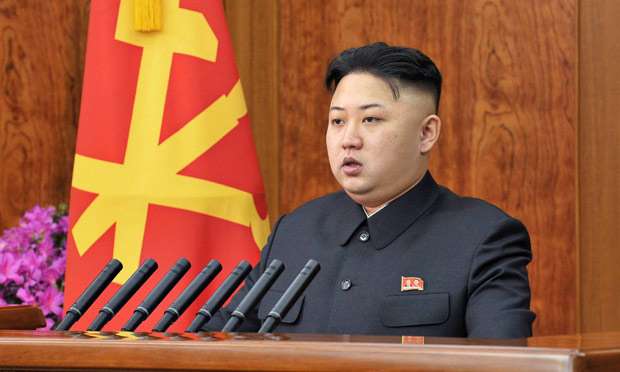I have never met my grandparents. This isn’t because of family division or irreconcilable differences, but due to an act of terrorism. On Nov. 29, 1987, Korean Airlines flight 858—en route to Seoul from Baghdad—exploded over the Andaman Sea. Two North Korean agents, acting on personal orders from Kim Jong-Il, had planted explosive devices in the cabin that detonated during the flight. My grandparents and all 113 passengers and crew were killed.
However, today the media and the audience views North Korea and its leader Kim Jong-Un as nothing more than comic relief, dismissing him as a pudgy-faced joke.
On the Internet, blogs like “Kim Jong-Un Looking at Things” and “Kim Jong-Un is Hungry” play up the comical side of the regime. Numerous photos of Kim Jong-Il and his son Kim Jong-Un have been utilized for a multitude of Internet memes. The Economist has printed a pseudo-satirical cover of Kim Jong-Il with the title “Greetings, earthlings,” ridiculing the leader’s sense of self-importance. Even Hollywood has gotten in on the fun, with films such as Team America showcasing the Great Leader’s vocal talents, where he croons about his own loneliness.
It’s hard to deny that the North Korean regime is ridiculous enough that it can be considered comical. Our society here is so far removed from the antics of someone like Kim Jong-Un that he may as well be a character from a work of fiction. But that same joked-about leader is also the head of a state responsible for numerous human rights abuses. On Feb. 17, the United Nations Human Rights Council (UNHRC) released a 400-page report after interviewing over 320 defectors from North Korea. The report contained detailed accounts of mass starvation, political executions, and labour camps reminiscent of Soviet-era gulags.
The Korean War (1950-1953) changed the lives of my family in irrevocable ways, both during and after the conflict. My grand-uncle defected to North Korea in the early stages of the Korean War as a young communist sympathizer. It wasn’t until the North Korean government allowed for family reunions in 2000, that we discovered he was still alive and had spent 50 years living in the North. And of course, my grandparents were casualties of a decades-old geopolitical conflict, directly caused by a ruler whose oppressive regime quashes the right to a legitimate political process for millions of people.
It’s difficult for me to see the humour in blogs, videos, and films that ridicule North Korea. It’s even more difficult for me to see why the common reaction to such material isn’t disgust and anger, but laughter.
Nonetheless, I do accept that humour can be a tool to shed light on unexamined issues. For example, Jon Stewart criticizing American policy towards military veterans in a humorous way still recognizes the incompetence of the policy behind the veil of comedy. However, memes and songs about Kim Jong-Un fail to address the suffering of human beings on an informative level, but simply dismiss him as a kooky dictator. If we cannot bridge the cognitive disconnect between the satire and the reality that is being satirized, we lessen our understanding and awareness of the atrocities being committed daily.
As I read the UNHRC report, I grimace to think of what those living in the camps would think of our memes, videos, and films about their leader who condemned them. Would they be laughing along with us?









Interesting article. I think the point you make is very important. As ridiculous as Kim Jong-Un is, people are paying a heavy price for his craziness. I think people find it easier to mock and satirize North Korea than come up with solutions for the problems it poses. I can understand this thinking though, as the situation does not seem to have a peaceful solution just waiting for someone to stumble upon.
Great article! A must-read!
I can’t agree with you more. It seems as though this mockery is the only way the situation in North Korea is dealt with – at least by the public. I’m not sure if this mockery is so prevalent in South Korea as it is in the west. Still, the gravity of the situation is absent and often not addressed. The more North Koreans that defect, the more families are being sent to camps.